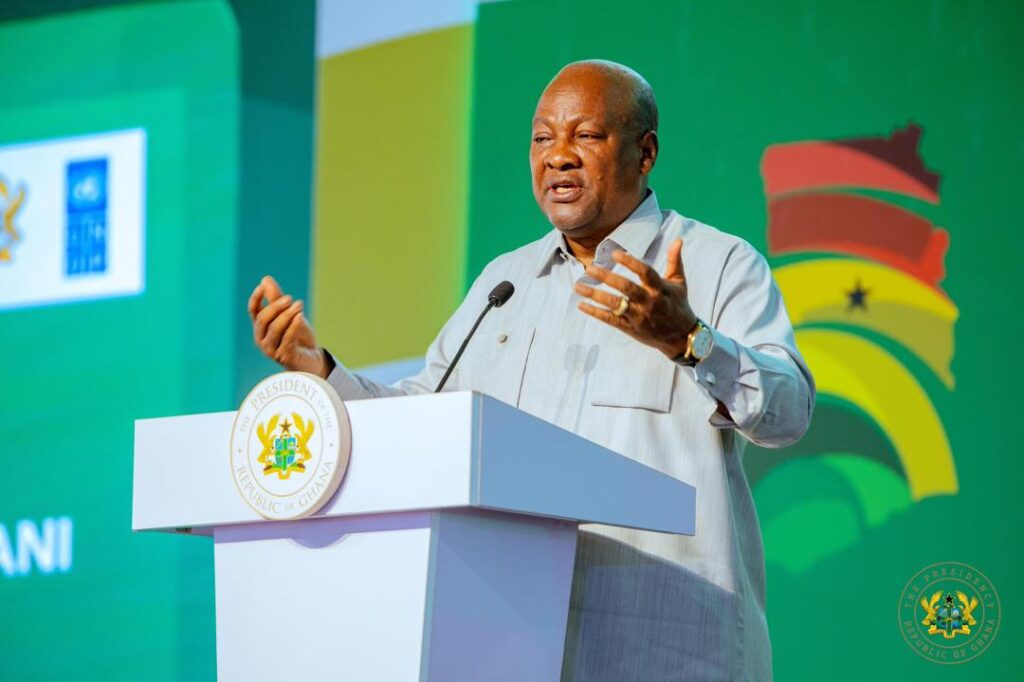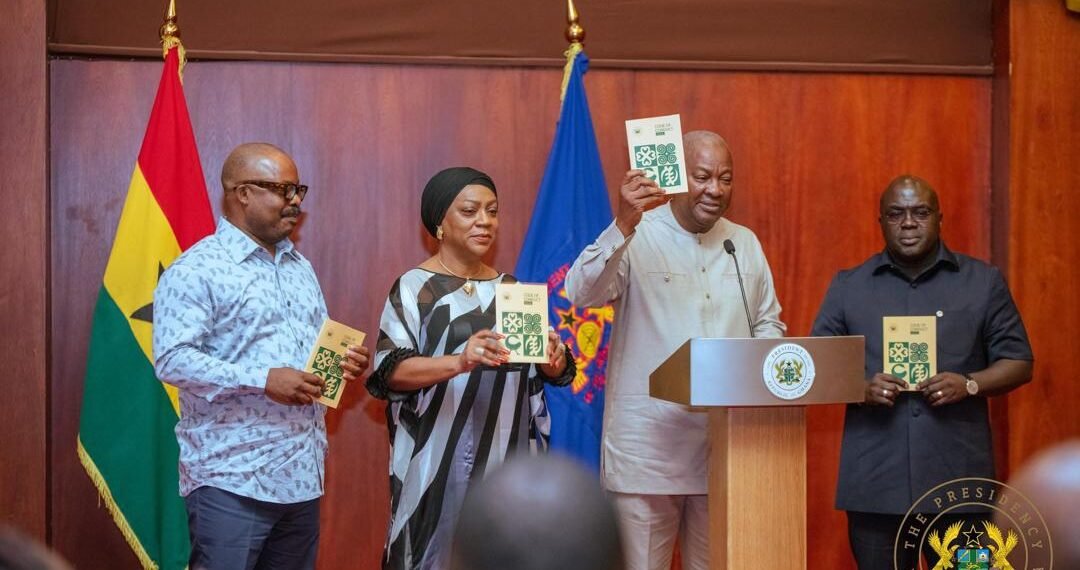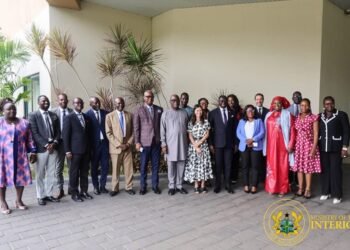In a bold move aimed at restoring public trust and strengthening democratic accountability, President John Dramani Mahama has officially launched a comprehensive Code of Conduct for political appointees under his administration.
The launch marks a significant milestone in the fulfilment of President Mahama’s “120-Day Social Contract” with the Ghanaian people — a commitment to instil discipline, integrity, and ethical leadership within the executive branch of government.
The code, according to President Mahama, is intended to guide the behaviour, decisions, and responsibilities of all political appointees, from ministers and deputy ministers to board members, CEOS of state agencies, presidential staffers, and even the President and his Vice.
“This code represents a bold declaration of the standards we must uphold as servants of the public. It reflects our commitment to build a government that is ethical, responsive and worthy of the people’s trust.
“Let me be clear. This document is not a ceremonial one. It is a living and an enforceable framework that outlines what is expected of every individual appointed under this administration.”
HE President John Dramani Mahama
According to President Mahama, the code is designed to foster a new political culture grounded in transparency, humility, and ethical governance — values he argued are critical to rebuilding trust in leadership and the state.
The Code of Conduct outlines a set of core principles and obligations that all appointees must adhere to.

These include the requirement to serve with integrity and impartiality, avoid the misuse of public office, place national interest above personal gain, and manage potential conflicts of interest with full disclosure.
Conflict of interest, in particular, is treated as a high-risk area for abuse. President Mahama warned that appointees must not award contracts to companies connected to themselves or their close relations, nor use insider information for private benefit.
He emphasized that any form of influence-peddling or failure to make official declarations in writing will attract disciplinary action.
“If you are a key partner in a company that does business with the government, you must disclose that in writing, not via telephone calls or relatives”.
HE President John Dramani Mahama
Regulation of Gifts
Another critical component of the code is the regulation of gifts and hampers, which President Mahama noted have historically blurred the lines between appreciation and influence.
Under the new code, appointees are strictly prohibited from accepting gifts or favors from individuals or companies with interests in government decisions.
Any official gift exceeding GH¢20,000 in value must be declared, and unless expressly permitted by the President, must be surrendered upon leaving office.

Furthermore, the use of state funds — including Internally Generated Funds (IGF) — for the purchase or distribution of hampers is banned.
“The only exemption is a modest gift for excellent work and retirement. For government entities that must distribute hampers or gifts as part of their corporate commercial policy, express permission for the budgeted expenditure must receive prior approval from the chief of staff’s office.”
HE President John Dramani Mahama
The code also sets stringent rules for ministerial travel. All official trips must be pre-approved, budgeted for, aligned with national priorities, and followed by detailed reports submitted to the Chief of Staff within 14 days of return.
Ban on Purchase of State Assets
In a firm stance against the abuse of state property, President Mahama announced a total prohibition on the purchase of state assets by political appointees.
This, according to President Mahama includes state lands, vehicles, shares or buildings, insisting that no political appointee is permitted to purchase state assets directly or indirectly.
“If you attempt to do so and you are found out, your appointment will be terminated. We are here to protect the national interest, not to help ourselves with the national purse”.
HE President John Dramani Mahama
Sanctions for breaches of the code range from public apologies and reprimands to suspension, resignation, or termination.
President Mahama stressed that these sanctions will not be cosmetic. “I will not hesitate to act firmly and decisively, no matter who is involved,” he warned.
In a major move to promote transparency and citizen engagement, President Mahama announced the creation of a public portal for reporting suspected violations of the code.
The portal will guarantee confidentiality and trigger impartial investigations, giving Ghanaians a direct role in safeguarding public accountability.
Sanction on Asset Declaration Failures
The President also addressed the critical issue of asset declaration. He reminded all appointees who assumed office or were nominated before March 31, 2025, that they were required to declare their assets by that date.
“Those who failed to meet the deadline will forfeit three months’ salary, in addition to the one-month salary all appointees must donate to the Mahama Cares Trust Fund. This brings the total deduction to four months’ salary.”
HE President John Dramani Mahama
He issued a final warning: any appointee who fails to declare their assets by the close of Wednesday, May 7, 2025, will be dismissed.

“The asset declaration regime is a vital mechanism to check corruption and abuse of office. It must be respected.”
HE President John Dramani Mahama
President Mahama concluded with a strong appeal for unity and discipline in service to Ghana from all political appointees under his administration.
“This is a very strict code, I must admit. But if we abide by it, it will restore the faith of our people in our democracy. Let us walk this path together with humility and an unyielding commitment to the people of Ghana.”
HE President John Dramani Mahama
With this landmark initiative, President Mahama has thrown down the gauntlet, signaling a new chapter of ethical leadership and public accountability that, if enforced, could redefine political culture in Ghana.
READ ALSO: Rwanda, US Discuss Controversial Deportation Transfer Deal




















